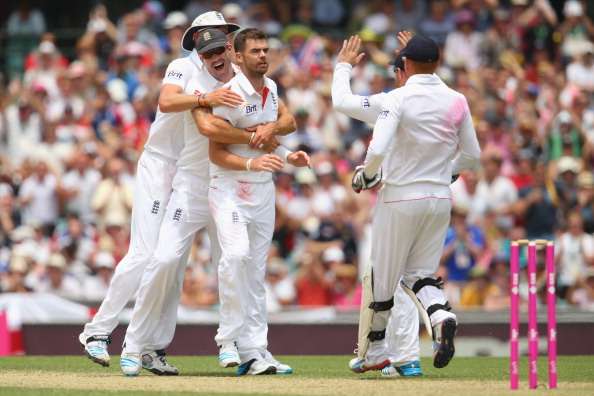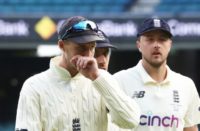England’s cricketers have been assured that, should they choose not to travel to Bangladesh next month for the first leg of the winter tour because of recent terrorist attacks there, that decision will not be held against them when it comes to future selection.
Fine in theory. But…
Sadly, the choice facing Alastair Cook and his players is not without precedent.
Indeed, for their coach Trevor Bayliss and his assistant Paul Farbrace it will bring back harrowing memories of the carnage unleashed by those gunmen who opened fire on the Sri Lankan team bus in which they were travelling prior to a Test match against Pakistan in Lahore in 2009. That was an incident which claimed the lives of six policemen and two civilians, caused injuries to six Sri Lanka players and the total shutdown of international cricket in that country ever since.
On three further occasions since the start of the Millennium, England players have been placed in the invidious position of having to decide for themselves whether or not to enter parts of the world where their safety might be more at risk than is usually the case.
First, in the wake of the 9/11 attacks on New York and Washington, those who had just been picked for England’s 2001-02 tour to India were thrown into the same boat, quite unprepared and unqualified to make such a judgement.
Acknowledging the potential threat from extremists that caused the Foreign Office to advise Europeans in India to “keep a low profile” (England cricketers in India, low profile?), the Chairman of the ECB, Lord MacLaurin seemed at odds with his chief executive Tim Lamb over whether the tour should go ahead at all, and, as with the upcoming tour to Bangladesh, the Board announced it would be left to individual players to decide.
Wisden recorded later: “Five (players) expressed doubts – Marcus Trescothick, Andy Caddick, Ashley Giles, Craig White and Robert Croft…. Caddick and Croft pulled out. Caddick, a father of two, said he had only to cradle his baby in his arms to know he had made the right decision.”
In the event, while Caddick resumed his career without delay, Croft never played again.
As the debate raged over whether Nasser Hussain’s players should play Zimbabwe in Harare during the 2003 World Cup, there were conflicting views over whether the death threat issued by the ‘Sons and Daughters of Zimbabwe’ should be taken seriously.
Their concerns were genuine; not only because of that warning, but also on the grounds of the safety of those who might get caught up in any violence caused by their presence, then on whether they should take a moral stance over the excesses of Robert Mugabe’s brutal regime.
And yet they were treated with a mixture of irritation bordering on contempt, both by the ICC and, at least initially, by the ECB.
The players themselves were split over the issue. But Hussain, who grew more certain that the moral argument should be paramount, never lost the feeling that the ECB’s desire that the match should be played was more about cricket politics than anything else.
Either way, the Board’s tactic of putting the players under pressure by suggesting the ICC might impose hefty and damaging fines or a ban that would impact on the domestic game’s finances as whole was just shoddy.
And Lord’s officials laid themselves open to the same charge in 2008 when, after the terrorist attacks in Mumbai that led to the loss of more than 150 innocent lives, the players were again urged to return to the sub-continent for the scheduled two-Test series.
Even though, following a trip there by security adviser Reg Dickason, Kevin Pietersen’s players had been guaranteed the highest levels of protection, when the Board once again placed the decision on the players’ heads it caused a split in the camp.
The skipper was dead set on taking the team back to India. Steve Harmison and Andrew Flintoff were equally convinced they should not go and five more, James Anderson, Alastair Cook, Matt Prior, Graeme Swann and Ian Bell shared their reservations.
In the end, according to Anderson, writing in his autobiography, the choice he made to return was not based on security or whether it was morally defensible to play cricket at a time when so many were in shock and mourning loved ones, but rather out of loyalty to his teammates who had chosen to go.
“Regardless of how others had reached their decisions,” Anderson explained, “our small group went back not because we thought it was the right thing to do, but because we thought we should do the right thing by our teammates. If the majority were going, there was an onus on me to show loyalty to the team and stick together as a team. All for one, and one for all, and all that.”
That was the crux of the issue then, and it remains so now.
The ECB has said they will be guided again by Dickason, whose judgement, professionalism and expertise the players trust implicity, on whether the tour to Bangladesh can go ahead.
That’s okay as far it goes and if Reg says no, that will be that.
But what if he says yes? It is at this point that, once again, the Board will put the decision back in the hands of the players who will, once again, be asked to absolve them of responsibility and do the right thing by the majority.
All for one, and one for all?
Back in 2001, Caddick and Croft made a different choice and some might consider it took more courage to do that than rather than to go with the flow.
In the end, though, those considering their options might have to weigh up whether they are as indispensible to the team as the former, or as disposable as the latter.
This piece originally featured in The Cricket Paper, Friday August 19 2016
Subscribe to the digital edition of The Cricket Paper here












